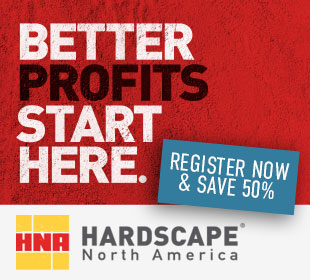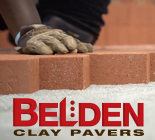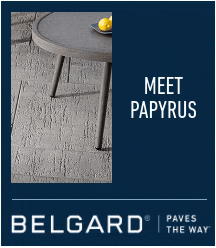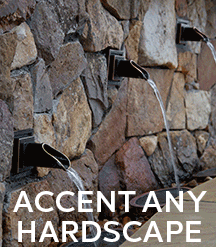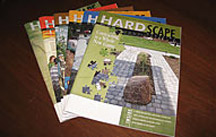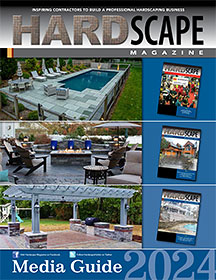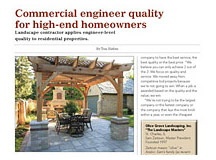Articles written by guest contributors
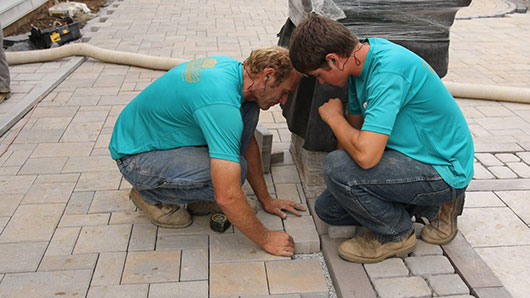
Jeremy Martin (left) gives a hardscaping class and hands-on instruction for students at local high schools.
10 tips to build your crew with Gen Z
By Jeremy MartinFirst off, let me introduce myself. I’ve spent my entire life in the industry, and can’t imagine doing anything else. I co-founded Willow Gates Landscaping in 2005, became an ICPI instructor in 2016 and an NCMA instructor in 2018. I’ve learned from some of the best in the industry, and find it incredibly humbling and an honor to appear in a space once filled by Bill Gardocki, one of my long-time heroes!
Willow Gates is a small business, and we’ve always run 1 or 2 crews. Certainly our growth was often hindered by the tough job market. Saying it’s competitive in our area is a gross understatement. An 18 year old can have his choice of any blue collar job, earning $16 - $17 an hour with zero experience.
I hear lots about how young people don’t want to work. I disagree. I’m a millennial, and my hardworking crew is 100% Gen Z. I love their energy and passion for life in general, and joke that they keep me young! Currently, we are in a better position for labor than we have ever been for my entire career. Here is a list of 10 factors that I credit for that.
- The “feel good” stuff actually works. I care about each one on my crew. I know at least the basics of their lives. Who’s dating, who’s getting married soon, etc. Who’s dreaming of a new truck and for which brand he’s shopping! We had all the employees and their families at my house for a cookout one year. The next year we hosted it at one of our largest projects ever. We have fun together. If I had to choose between my friends vs employees for a road trip, I’d probably choose my crew! Road trips or day trips doing volunteer work together is a highlight.
- Educate employees. Everyone on our hardscape crew goes for installer certification courses, plus we attend some industry shows. We learn and have fun together.
- Pay above average. Word gets around. Don’t compare your pay scale with other landscape or hardscape contractors; many charge too little and don’t pay their employees enough. Certainly I’ve already made that mistake. Wages do vary by region, so compare yourself with other types of contractors in your local labor market – carpenters, truck drivers, HVAC techs, mechanics, etc. Make sure you can compete against them. Develop a pay scale and make it clear to your crew how to advance to the next level.
- Do quality work. Word gets around. Quality employees like doing quality work and will seek out an employer who cares. Employers who don’t care tend to attract employees who don’t care.
- Treat your vendors well. Word gets around. Your suppliers know which contractors pay their bills, care about quality and treat their people well. If someone comes into a supplier looking for a job, guess which contractor they’ll steer a good lead towards? Probably not the cheap guy whose account is always 60 or 90 days late.
- Be active in the industry. Word gets around. I teach ICPI and NCMA installer courses. While I’ve not hired anyone from those classes, if someone decides they’re ready for a new employer or just tired of trying to do it all themselves as an owner, hopefully they’ll remember me. Social media is another place to increase visibility. Facebook has some great groups, and being active on Instagram can gain you a following within the industry.
- Be active in your community. I do shop classes with local high schools. Students get a crash course in paver and wall installation. I condense ICPI and NCMA course materials (used with their permission and my great appreciation!) for classroom presentations. Plus they get hands-on experience building a real project. They work with my crew and see all the cool specialty tools we use to save our backs. They can even run an excavator and learn how to cut block – dust free, of course. These students learn that blue collar work can be really fun, and pay well to boot.
Volunteering your crew for a local nonprofit is another great way to build visibility. For a number of years, we have volunteered at a wilderness boys camp. Those days are long but we make some great memories; it’s a team building experience and it helps us to remember that there is more to life than just hardscaping. - Pay referral bonuses if your employee refers a candidate that you hire. Our bonuses range from $1,200 to $2,400, plus they get an extra 2 days of paid vacation per year for as long as both the referring employee and the new hire remain with the company.
- Push employees to take on new responsibilities. Let them try new things. Push them beyond their comfort zone occasionally. Give them enough space to mess up and learn from their mistakes. Show them where they failed and let them try again. This is great for hands-on work.
It also helps develop leadership skills. This year we started taking turns moderating crew meetings. Yes, it pushes them out of their comfort zone and the first time they’re nervous, but they talk more when it’s not just the boss talking. I love it. And they admit that it’s stretching them, but it’s good. - Set expectations high. People, myself included, tend to meet what’s expected of them. Think they’re idiots and bash them all over social media? You’ll get idiotic mistakes and I-don’t-care attitudes. But if you identify the potential, help them see it, and show them how to develop it – they will.
I can say that I’m a better employer than I was 3 to 5 years ago. I have seen how my actions, or failure to take action, can ruin morale. I’ve lost great employees due to my mistakes. I’ve made bad hires, the guys who didn’t care, who wrecked equipment, who caused blown schedules. I wondered at times if we’d survive. The tough times just remind me how blessed I am with my current team.
One of my biggest mistakes was not focusing on developing leadership and people skills earlier in my career. If you’re an owner or crew leader, people skills are equally important to installation skills. Don’t neglect developing them! You might be the absolute best paver installer in the world, but it’s awfully lonely working by yourself.
2020 is here. The economy is still strong, the labor market still tight. I hope you can put some of these tips to use in your own company. Got more ideas that worked in your company? I’d love to hear them!
Jeremy Martin co-founded Willow Gates Landscaping in 2005. He became an ICPI instructor in 2016, NCMA in 2018. He also founded Dust Killer Tools to help his company meet 2017 OSHA silica standards. Email Jeremy@DustKiller.tools. Visit WillowGatesLandscaping.com and DustKiller.tools
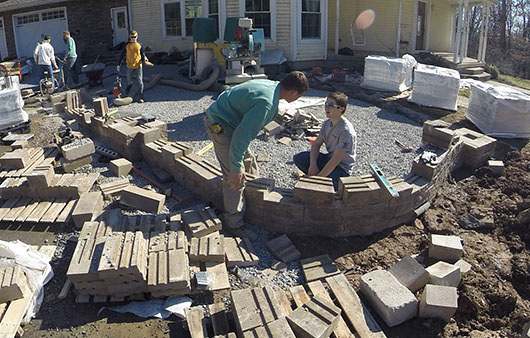
As part of Jeremy’s hardscaping class at local high schools, students get experience building a real project with the Willow Gates crew. Crewman Josh Groff pictured in the foreground.



